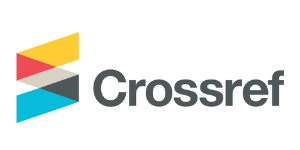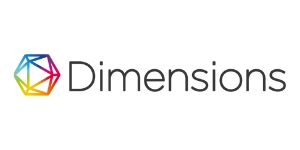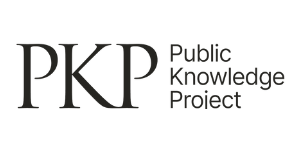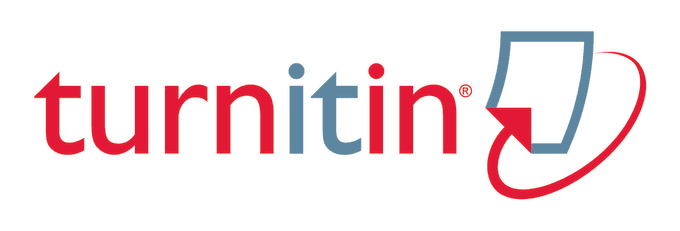Use of Social Media Celebrity Influencers in Promoting Hospitality Business Brand in Nigeria
A Public Relations Perspective
DOI:
https://doi.org/10.37535/105004220259Keywords:
brand management, influencer marketing, hospitality, public relations, social mediaAbstract
This study takes a theoretical approach to examine the interconnectedness of brand management, influencer marketing, and public relations within Nigeria’s hospitality industry, focusing on the growing role of social media celebrity influencers. Brands serve as symbolic constructs that shape consumer perceptions, emotional connections, and purchasing decisions. Successful branding extends beyond differentiation to foster trust, loyalty, and engagement. With the rise of digital media, public relations strategies have evolved, allowing hospitality businesses to leverage influencers for enhanced visibility and consumer connection. These influencers, perceived as credible and aspirational figures, play a pivotal role in shaping consumer attitudes and brand perception. To maximise the impact of influencer marketing, Nigerian hospitality business owners are to carefully select influencers whose values align with their brand identity. Reliable partnerships foster stronger consumer trust and engagement. Stakeholders need to integrate conventional and modern branding elements, focusing on consistent visual identity, consumer experiences, and reputation management. Emotional connections, built on shared values and positive brand experiences, are essential for long-term success. Additionally, PR experts should utilise data analytics to guide strategic decision-making in brand management, influencer partnerships, and service delivery. By adopting a holistic, data-driven approach to influencer marketing and public relations, hospitality businesses can enhance their competitive edge, sustain growth, and navigate the evolving dynamics of Nigeria’s digital marketplace.
References
Azar, S. L., Machado, J. C., Vacas-de-Carvalho, L. & Mendes, A. (2016). Motivations to interact with brands on Facebook – Towards a typology of consumer–brand interactions. Journal of Brand Management, 23(2), 153–178.
Belch, G. E. & Blech, M. A. (2001). Advertising and Promotion: An integrated marketing
communications perspective. New York: Irwin/McGraw-Hill, Inc
Bilro, R. G. & Loureiro, S. M. C. (2020). A consumer engagement systematic review: synthesis and research agenda. Spanish Journal of Marketing, 24(3), 283–307.
Campbell, C. & Farrell, J. R. (2020). More than meets the eye: The functional components
underlying influencer marketing. Business Horizons, 63(4), 469–479.
Chan, T. K. H., Zheng, X., Cheung, C. M. K., Lee, M. & Lee, Z. W. Y. (2014). Antecedents and consequences of customer engagement in online brand communities. Journal of Marketing Analytics.
Cheung, M. L., Pires, G. D., Rosenberger, P. J. & De Oliveira, M. J. (2020). Driving consumer–brand engagement and co-creation by brand interactivity. Marketing Intelligence & Planning.
Djafarova, E. & Bowes, T. (2020). ‘Instagram made Me buy it’: Generation Z impulse purchases in fashion industry. Journal of Retailing and Consumer Services, 102345.
Dwivedi, A., Johnson, L. W. & McDonald, R. E. (2015). Celebrity endorsement, self-brand
connection and consumer-based brand equity. Journal of Product and Brand Management, 24(5), 449–461.
Evans, D. (2010). Social media marketing: An hour a day. John Wiley & Sons.
Fernandes, T. & Moreira, M. (2019). Consumer brand engagement, satisfaction and brand loyalty: a comparative study between functional and emotional brand relationships. Journal of Product & Brand Management, 28(2), 274–286.
Hollebeek, L. D., Glynn, M. S. & Brodie, R. J. (2014). Consumer brand engagement in social media: Conceptualization, scale development and validation. Journal of Interactive Marketing, 28(2), 149–165.
Holmes, S. & Redmond, S. (2014). Socialising celebrity. Celebrity Studies, 5(3), 223–224
Jin, S. V. & Ryu, E. (2020). “I'll buy what she's# wearing”: The roles of envy toward and
parasocial interaction with influencers in Instagram celebrity based brand endorsement and social commerce. Journal of Retailing and Consumer Services, 55, 102-121.
Jones, J. (2017). How to use advertising to build strong brands. Thousand Oaks: Sage.
Ki, C. C. & Kim, Y. (2019). The mechanism by which social media influencers persuade
consumers: The role of consumers’ desire to mimic. Psychology & Marketing, 36(10), 905–922.
Ki, C. W. C., Cuevas, L. M., Chong, S. M. & Lim, H. (2020). Influencer marketing: Social media influencers as human brands attaching to followers and yielding positive marketing results by fulfilling needs. Journal of Retailing and Consumer Services, 55, 102-133.
Kotler, P. & Keller, K. L. (2009). Marketing management. New Delhi: PHI Learning Private
Limited.
Keller, K.L. (2013). Strategic Brand Management (2nd ed.). Prentice-Hall.
Kenton, S. B. (2018). Speaker credibility in persuasive business commu-nication: a model which explains gender differences. Journal of Business Communication, 26(2), 143–157.
(7) (PDF) The effectiveness of celebrity endorsements: a meta-analysis. Available on: https://www.researchgate.net/publication/309089731_The_effectiveness_of_celebrity_endorsements_a_meta-analysis (accessed Feb 18 2024).
Lahap, J., Ramli, N. S., Said, N. M., Radzi, S. M. & Zain, R. A. (2016). A study of brand image towards customer’s satisfaction in the Malaysian hotel industry. Procedia - Social and Behavioral Sciences, 224, 149–157.
Lou, C. & Yuan, S. (2019). Influencer marketing: How message value and credibility affect
consumer trust of branded content on social media. Journal of Interactive Advertising, 19(1), 58–73.
Okafor, E. (2021). Hospitality war: Short let apartment takes on hotels for market share. Business Day, Available on: https://businessday.ng/real-estate/article/hospitality-war-short-let-apartment-takes-on-hotels-for-market-share/
Olumuji, E. O. & Okunomo, T. (2022). Celebrity endorsement of telecommunication advertisements. Journal of Media, Communication and Languages, 8(1), 78-93.
Rindova, V. P., Pollock, T. G. & Hayward, M. L. (2006). Celebrity firms: The social construction of market popularity. Academy of management review, 31(1), 50-71
Rossiter, J. R. (2012). ‘Branding’ explained: Defining and measuring brand awareness and brand attitude. Journal of brand Management, 21, 7-8.
Sari, A. K. & Wahjoedi, T. (2022). The influence of brand image and brand awareness on purchasing decisions is moderated by brand ambassador. World Journal of Advanced Research and Reviews, 16(3), 947-957.
Sasu. (2023, January 19). Nigeria Instagram Users by Age 2022, Statista. Statista. Retrieved June 13, 2023
Schivinski, B. & Dabrowski, D. (2016). The effect of social media communication on consumer perceptions of brands. Journal of Marketing Communications, 22(2), 189–214. https://doi.org/10.1080/13527266.2013.871323
Sheldon, P. & Bryant, K. (2016) Instagram: Motives for its use and relationship to narcissism and contextual age. Computers in Human Behavior, 58, 89-97.
So, K. K. F., King, C. & Sparks, B. (2014). Customer engagement with tourism brands. Journal of Hospitality & Tourism Research, 38(3), 304–329. https://doi.org/10.1177/1096348012451456
Tiago, M. T. P. M. B. & Verissimo, J. M. C. (2014). Digital marketing and social media: Why bother? Business Horizons, 57, 703-708
Wei, P. S. & Lu, H. P. (2013). An examination of the celebrity endorsements and online customer reviews influence female consumers’ shopping behavior. Computers in Human Behavior, 29, 193–201.
















